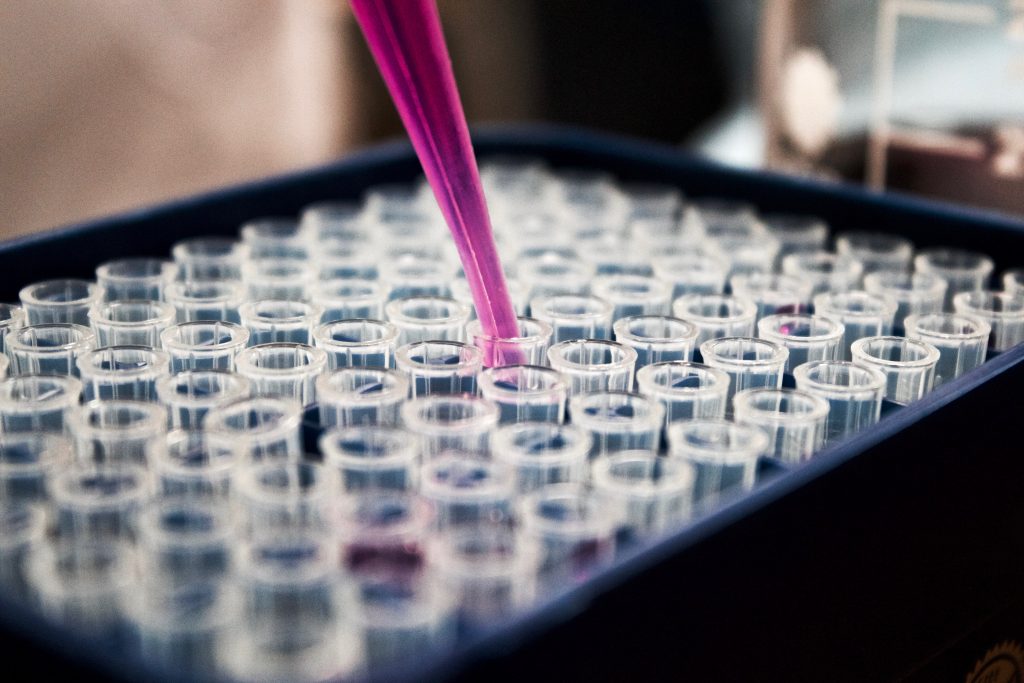‘Lab testing’ might call to mind people in white coats doing unspeakable things to mice, but when we say we test every batch of Plato, rest assured we’re not talking about animal testing.
Why testing supplements matters
Supplements are concentrated bioavailable material, so it’s important that you’re getting what you want, at the dosage you want, and nothing else.
If you’ve read about our philosophy elsewhere on the site, you know we’re talking about one of our favorite things: evidence.
While we work with only the best ingredients from suppliers we trust with names we know, when it comes to a daily supplement we give to you, take ourselves, and share with our friends and family, trust is not enough.
When it comes to what we put in our bodies, we want to know everything we can, and we shouldn’t have to take anybody’s word for it.
So despite that we only work with branded, standardized extracts, we independently test everything about our ingredients and finished product to be sure we’re getting exactly what we want and nothing else.

What tests do we do?
Identity testing
The first thing we test for when receiving a batch of raw materials from our suppliers is identity. By ‘identity’ we mean ‘is this the plant we’ve been told it is’.
When a supplement company purchases a raw ingredient for use in one of their products, it comes with a document from the producer providing assurance that the ingredient is what’s on the label. This is known as a Certificate of Analysis, and, unless the producer is a reputable name, it’s not worth the paper it’s printed on. Regardless of who it came from, it’s up to the receiver to verify everything about it.
Believe it or not, this is a major problem in the supplements industry. There are rampant issues with mislabeled products on the market, with, eg, Korean red ginseng being sold as Panax ginseng or Rhodiola crenulata being sold as Rhodiola rosea. Those aren’t even the same plants!
Unfortunately, it’s extremely common for manufacturers to take a supplier’s word for it without doing their own testing to confirm the species, and to pass along whatever they’re told by the supplier, even when it’s wrong. Sometimes this misrepresentation is done through malfeasance and sometimes it’s a mistake, but it can always be avoided with proper identity testing, so every ingredient that goes into Plato is verified at the raw material stage.
Potency testing
Once we’ve established that we’re dealing with the plant we want and the part of the plant we want, we are then ready to look at the potency of the ingredient. For reasons we’ve discussed elsewhere on the site, we’re using standardized extracts, so we are already nearly certain of the potency when we receive the raw material.
Still, as the proverb goes, ‘trust, but verify’, and so we subject all our herbal ingredients to third-party potency testing to confirm the certificate of analysis that came with the lot.
In potency testing, we’re looking for the quantities of the active components that are responsible for the results we want from these ingredients. In the case of Plato, we test for ginsenosides (in ginseng), bacopa glycosides (in Bacopa), and rosavins and saponins (in Rhodiola). We don’t test potency on L-Theanine because L-Theanine is, itself, a single molecule, and so can be said to be 100% potent by its very nature.
Purity testing
OK, so with identity and potency established, the third kind of testing we do is purity testing.
When you concentrate material, the reduction in volume or mass that takes place won’t necessarily affect everything in the same way. You may end up concentrating things you don’t want along with the stuff you do.
As an analogy, you might drink tap water all the time and have no problem with the levels of contaminants in there. BUT, if you boil a pot of that water, refill it, boil it again, refill it, boil it again, etc etc, you might end up with a broth of contaminants that is not something you would want to drink.
Similarly, when you make an extract for a nootropic that comes in pill form, you’re concentrating a lot of stuff into a small package – that’s the idea, right?
But what undesirables could be in there to begin with?
As it happens, plants can be very good at pulling things out of their surrounding environment. It’s how they make more plant out of dirt and air. That means that plants can also concentrate contaminants from their environment as well – things like heavy metals show up in wild herbs at measurable amounts more often than you might think.
When it comes to testing, our policy is ‘trust, but verify’.
In addition to bioaccumulation, since we’re dealing with natural materials, we’re always confronting the possibility of contamination from microbes like bacteria, or perhaps some yeast, mold, or fungus that takes hold during the drying process.
For these reasons, we test for yeast, mold, fungi, bacteria, and heavy metals on the finished product to be absolutely sure we’re getting only what we want in each batch of Plato.
See for yourself
If you want to see the results for yourself, head on over to the Batches page to look up anything you’d like to know about every batch of Plato we’ve sold. You can find your batch number on the bottom of the bottle.


